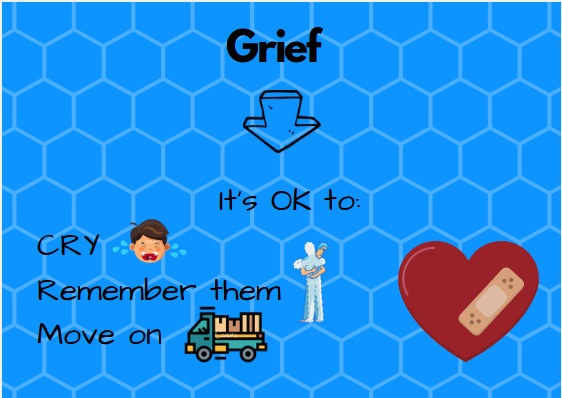Not because you lost the use of your legs or your eyesight, hearing, or the ability to remember your past, does not mean you are not the same person. Our humanity is not in our fallibility, but in our ability to rise up after we fall. Some incidents in our lives are truly tragic that it may seem impossible to recover, not become the same person we once were, but there are many ways of hurdling these difficulties and eventually we will move on and become who we always were.
And the first step to any problem is to recognize that it exists. Denial merely delays moving on with the acceptance of the tragedy. Denial delays resolution thus, the sooner the situation is acknowledged and recognized, the better.
So you now have to live with a disability. Whatever it is, the most important factor is that you are a person and losing limbs or abilities are no different from losing a loved one. You will need to mourn that loss. You need to be given the space to express your grief, in whatever way as long as it does not involve hurting others and hurting yourself. If you self-destruct, you are not going to heal from your grief, rather will be destroyed by it. In effect, you would have been beaten (possibly to death) by your tragedy. Life is not meant to teach you failure. Life means to teach you resilience.
While you mourn, you must be respected in your state of grief. No one has the right to make fun or belittle your grief. No one can tell you when it is time to move on, it will come when you are ready. Grief is not the same for everyone, while some may make suggestions of which strategies worked for them and it would not be a bad idea to try out some of these suggestions, it is important you know that it is you who decides when you will be ready.
For those who assist the grieving, it is important, more than anything else, that you give them space. They may choose not to speak to anyone, or not to enjoy their usual activities, that is normal. For about a year or so. You may assist them by helping them put together things of the deceased or things they might have used before the disability. It is important that the grieving are not made to do things against their will, especially those who have survived criminal levels of abuse.
If the grieving opens up to you, just listen. They do not need to be judged for past indiscretions. If you are assisting someone who lost a loved one, and there are some things the grieving wants to say to the departed, sometimes it may provide catharsis if they write an unsent letter which may contain all the things they may have always wanted to say but never got the chance to do so.
If you are assisting a person who is grieving and has only begun to live with a disability, always reassure them that it is normal to go through a gamut of emotions that it could sometimes be a roller coaster ride of sadness, anger and regret, not necessarily in that order. While it is crucial that the grieving is given the space and the time to mourn their loss. it is also important to remind them that they are not alone in their struggle. Each person is connected to another and the fortune or misfortune of one will definitely affect another and so on. Family is always the most affected, especially parents, siblings and even more, spouses.
In conversations with the grieving, NEVER lead the conversation to the topic of their grief. LET THEM lead you to it in their own. When they begin to talk about it freely then that could be a sign that they are ready to confront the challenges and accept the situation for what it is, a temporary hurdle which eventually will be overcome and integrated into their daily lives.
In cases when the grieving person has been in mourning for too long (more than than 2 years) then that could be a sign of a deep kind of depression that could lead to self-harm or the harming of others. During this time, intervention by professionals is necessary. Seek or urge the family to seek professional help for the grieving. There is no shame in seeking psychiatric help. In the Philippines, there are fewer psychiatrists so the best place to find them would be in tertiary care hospitals. No, it doesn’t mean that the grieving person has lost his/her mind. It only means that certain chemicals in their brain has gone into a state of imbalance. This is common for those who have experienced severe emotional and psychological trauma. Similar to war shock, those who have to live with a disability after an accident or similar incident usually go through severe psychological trauma and will most likely undergo that kind of brain chemical imbalance resulting from their efforts to cope with the tragedy. Just like any medical condition, there are medicines that can be taken to correct this chemical imbalance and will get the sufferer back to his/her old self.
Let us not disregard those who are in grief. Let us truly help them.

